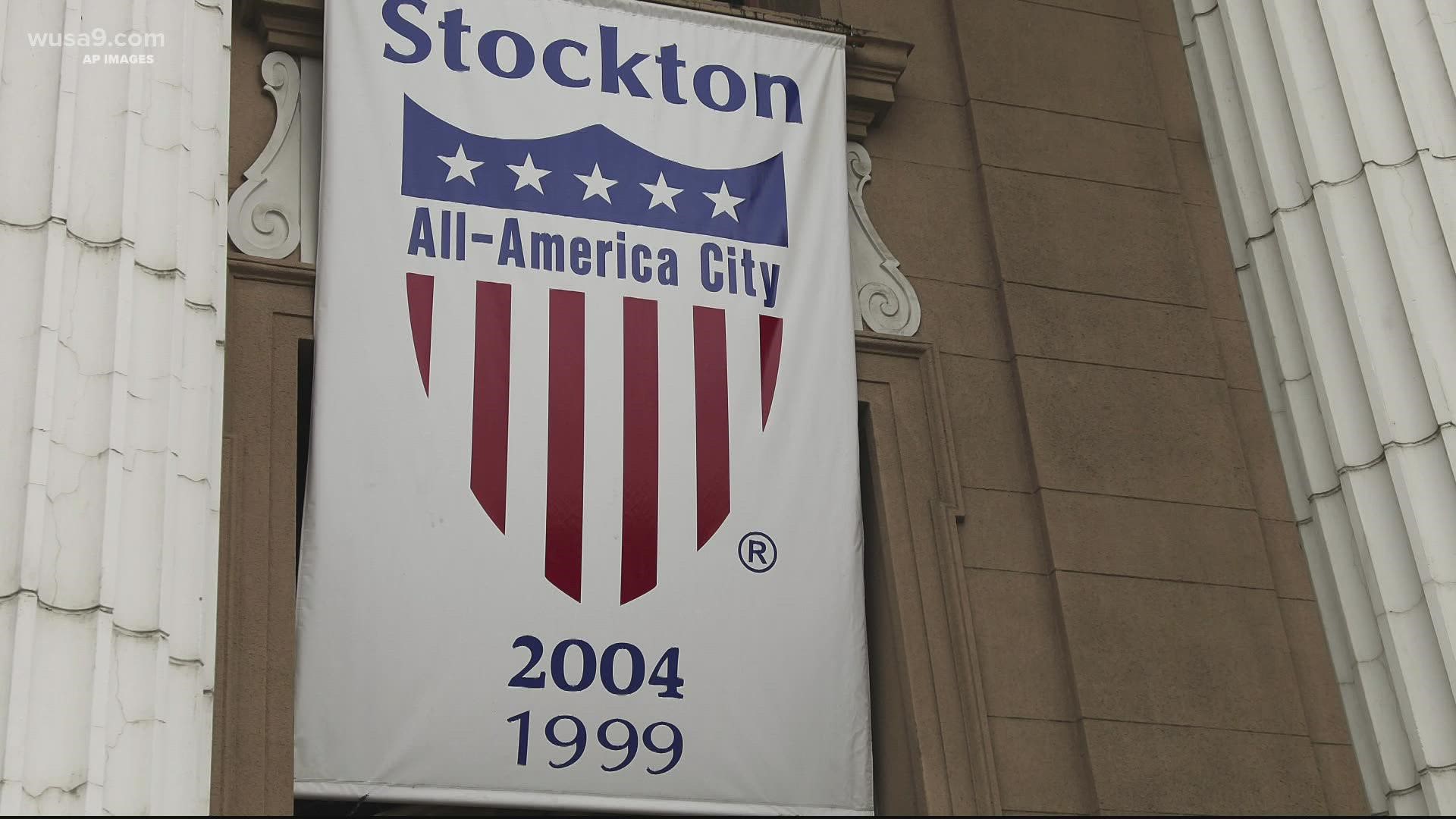WASHINGTON — Universal Basic Income (UBI) is not a new concept, it has been thrown around for decades. But it seemed to hit the mainstream during the 2020 Presidential Election when candidate Andrew Yang made it the focus of his platform.
UBI has been the focus of many theoretical economic papers and during the pandemic its gained steam in the real world.
Montgomery County, Maryland just announced a plan to roll out its pilot program next year. Similar programs have launched or are about to start in Arlington and Alexandria.
To understand Universal Basic Income or UBI we broke it down into three questions.
OUR SOURCES:
- Ben Gitis, an associate director with the Bipartisan Policy Center’s Economic Policy Project.
- Elaine Maag, a researcher from the Tax Policy Center at The Urban Institute.
- Several studies on UBI
What is universal basic income?
“Basic income is the idea that every person in the country will have some standard of living provided to them,” Maag explained.
“Instead of having a number of different programs folks would go to, there would be one check that goes out to every single person that would be their source of federal government support,” Gitis said.
The idea is Universal Basic Income could soften the burden of the rising costs of living in the U.S.
At the same time, it could encourage more work.
Would that discourage people from working if they’re getting free money?
In this aspect, our experts disagree. Gitis agrees that UBI’s goal is to get more people into the workforce and build careers but he doesn’t see it working that way.
“Universal Basic Income at best does not help us achieve those objectives because we're simply giving people money,” he said.
While Maag said she has seen real-world benefits.
“In Stockton, California they found actually, the benefit encouraged people to go to work, even though it wasn't based on work,” she said.
Does it work?
This is a difficult question to answer. UBI has been theoretical for so many years. Only recently have many U.S. local governments attempted to try it.
Currently, the largest study was a two-year program in Stockton, California. The city gave an extra $500 a month to 125 residents for two years.
“What they found is that people who got the full benefit, were more likely to increase the work hours,” Maag said.
But, Ben Gitis disagrees with that study’s findings.
“There haven't been really any large-scale implementations of a universal basic income, that would be insightful for a U.S. federal policy for implementing that,” he said.
This is why there will be so much scrutiny on the pilot programs in Arlington, Alexandria, and now Montgomery County going forward.

